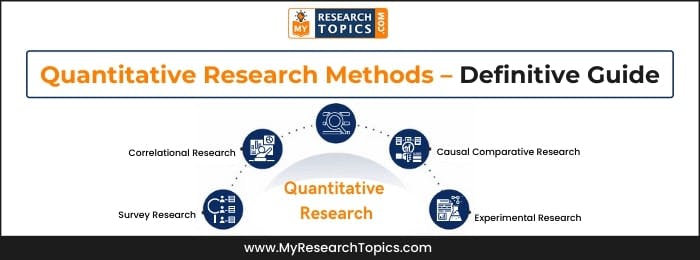Integrated Masters with PhD – Explained
Published 16 October, 2023
Synopsis
The traditional path to becoming a researcher or professor at a university generally involves completing an undergraduate degree, followed by a Master’s and then a PhD. However, some institutions offer the opportunity to complete all three of these levels of study in one go – this is known as an integrated Masters with PhD.The main advantage of completing an integrated Masters with PhD is that it saves time.
Introduction
Have you ever thought about continuing your studies to PhD level, but didn’t know how to go about it? Well, have we got the programme for you! An Integrated Masters with PhD (iPhD) is the perfect way to ease yourself into postgraduate research.
You’ll start off by completing a one-year Masters course, which will introduce you to your chosen topic and give you a taste of what research is all about. You’ll then move on to a three-year PhD programme, during which you’ll conduct your own independent research project.
The iPhD is particularly popular with international students and students who initially lack specialised knowledge or research skills. So if you’re looking for a challenge and want to take your studies to the next level, an iPhD could be for you!
What does an Integrated PhD means?
Pursuing a postgraduate degree can be a big commitment, and it can be tough to decide which route to take. For many students, an Integrated PhD is the perfect option. This four-year programme combines a one-year Masters degree with a three-year PhD, giving you the chance to complete two degrees in less time than it would take to pursue them separately.
Not only will you save time, but you’ll also have the opportunity to deepen your knowledge and hone your research skills. And because you’ll already have a Masters degree when you finish, you’ll be well-positioned to pursue a career in academia or research. If you’re looking for a challenge and want to make the most of your postgraduate studies, an Integrated PhD could be the perfect fit.
The Integrated PhD, which is offered by a few select universities, is an innovative and demanding course that allows students to complete both a Masters and a PhD in just four years. Although the courses run back-to-back, a student can only progress to the second year if they show satisfactory performance in their first year.
The one-year Masters and the three-year PhD are considered separately in terms of qualifications; therefore, a student who completes an Integrated PhD will receive both a Masters degree (MRes or MSc) and a PhD as opposed to a single postgraduate qualification. The Integrated PhD is an excellent option for highly motivated and ambitious students who are looking to fast-track their careers in academia or research.
The terms ‘Integrated Master’s with PhD’, and ‘integrated masters’ all refer to the same research degree. Although these may be used interchangeably in some cases we will henceforth refer them as “Integrated PhD” out of respect for clarity’s sake.
For whom Integrated PhD is suitable?
An Integrated PhD is suitable for a variety of students. If you’re an international student, an Integrated PhD can be a great way to transition into the UK education system. The one-year Masters degree will give you a chance to settle in and get used to the UK university experience before embarking on your three-year PhD research project.
The Integrated PhD is for students who meet the eligibility requirements but do not have the necessary background to be considered as a normal-route applicant. It generally consists of 3 types of students:
- Students with a good Bachelor’s degree (which is not normally sufficient to be considered for a PhD) in the relevant subject area. Such students may have had their application for a ‘normal-route’ PhD rejected but may be given the opportunity to take an Integrated PhD instead.
- The student has a Masters degree in an unrelated field, but they want to pursue doctoral studies and become part of the profession that is more closely aligned with their desired discipline.
- Although the student has a relevant Masters degree, the program was not focused on research, leaving him or her with little expertise.
Whether you’re an international student, a lack of UG research experience or simply looking to deepen your knowledge, an Integrated PhD could be the right choice for you.
Advantages of an Integrated PhD
- Integrated PhD programmes provide students with an opportunity to gain in-depth knowledge and research skills in a specific field prior starting of doctorate.
- An integrated PhD provides you with a more holistic training as it combines different fields of study. This can give you a better understanding of how different parts of a system interact with one another, and can equip you with the skills needed to tackle complex problems.
- It also helps you to develop interdisciplinary research skills, which are becoming increasingly important in today’s world. With an integrated PhD, you will be able to work across different fields and come up with innovative solutions to problems that require a multidisciplinary approach.
- It can also help you to build a strong network of connections with researchers from different disciplines. This can be extremely valuable when it comes time to look for jobs or funding opportunities.
- Integrated PhD programmes are also often more flexible than traditional PhD programmes, which can be beneficial for students who have other commitments such as work or family.
- Finally, an integrated PhD can lead to a more prestigious job and a higher salary than a traditional PhD.
Disadvantages of an Integrated PhD
- The main disadvantage of an integrated PhD is that it can be more challenging than a traditional PhD. This is because you will be expected to complete a Masters degree before embarking on your doctoral studies, which means that you will have to juggle two sets of coursework and examinations.
- An integrated PhD can also be more expensive than a traditional PhD, as you will have to pay for two sets of tuition fees.
- It can also be difficult to transfer credits from a Masters degree into a PhD programme, which means that you may not be able to get full credit for your previous studies.
- Finally, an integrated PhD may not be recognised by some employers or academic institutions, which can limit your career options.
All about Integrated PhD Programme
The programme of study is a dual structure, with Masters and PhD programs equally divided into two parts.
During your first year, you will take a series of compulsory and optional modules totalling 180 credits. In your second, third and fourth years, you will complete your PhD research project and write up your thesis (worth a further 360 credits).
Taught modules:
Subject-specific module: Students will attend lectures, seminars and practical classes as part of their chosen discipline. These modules will give them an in-depth understanding of the subject area and prepare them for their research project.
Transferable skills module: All students will be required to take a transferable skills module, which will teach them the essential skills needed for success in their chosen field.
English and Communication: Students will also be required to take an English and Communication module, which will help them to improve their writing and presentation skills.
Research Techniques: In addition, all students will be required to take a research techniques module, which will teach them the methods and techniques needed to carry out their research project.
Research proposal development: All students will be required to develop a research proposal as part of their application for the programme.
Research Modules:
All students will be required to complete a research project as part of their programme. This project can be either experimental or theoretical and will be carried out under the supervision of a member of staff.
When you apply to do your masters, one of the things they check is if have knowledge and skills that would be useful for doing doctoral studies. This means going through an interview with someone who can vouch whether or not it’ll work out well in terms research ability because there are certain traits only found after completing doctorates.
Your journey to becoming a Doctor could not have been smoother. The application process was simple and stress-free, you met all of the requirements needed for enrollment in your desired PhD program without any problems whatsoever–and now it’s time that you get started.
During your doctoral phase, you will be required to conduct independent research and laboratory work for two years. This is followed by a final year of writing up findings in order formally submitting them as thesis (in some countries). Your expertise on this subject matter will then undergo assessment through an oral examination knowns as a “viva voce”, in order to ensure that your research is of sound quality and meets international academic standards.
Eligibility criteria for Integrated PhD
To be eligible for the integrated masters degree in UK, one must meet all relevant qualifications and requirements. The typical requirement is an Upper Second Class (2:1) honours Bachelor’s degree with at least good upper second class result or international equivalents such as MSc(management).
International students might need to take an English language proficiency exam, like IELTS or TOEFL. You can check with each university whether they accept these certificates but the most common requirement is for those who have achieved at least 6 points on their overall scorecard– Enough To Gain admission!
Cost of Integrated PhD
The cost for an Integrated PhD in the UK can be as much £4,407 per academic year if you’re a home/EU student or £2k plus when studying abroad. This amount may change based on how many credit hours are required per semester but it’s typically cheaper to take classes part-time instead of full-time because there is no additional fee associated with taking fewer credits each term unlike undergraduate degrees where graduate tuitions vary by country according do their level in the European Union.
The tuition fees for an Integrated PhD can be divided into two rates: one that is charged during the masters phase and another which applies to students completing their doctorates. Most universities have similar arrangements, thus making it easy enough if you’re looking at four year programs or more without having too many different prices available per discipline; however there are some exceptions such as Durham University who charges differently depending on whether your course lasts three years ( taught postgraduate ) .
You should keep this difference in mind when comparing programs across institutions because while integrating research may seem like a plus point – especially given how costly some PhDs can be – it’s not always going to be the most budget-friendly choice overall.
You should budget for the expenses that come with studying abroad. These might include fees related to lab work, travel costs if you’re collaborating with anyone else at your institution or write-up hours needed by students who want more time on their dissertations before they submit them to academia.
Funding Opportunities
Integrated PhDs are the same as regular PhDs in terms of financing. Funding for Integrated PhDs is usually provided by one of the UK Research Councils or research charity organizations like the Wellcome Trust; grants, scholarships, and funded opportunities may be found right here in our searchable database.
Funding for your education is hard to come by. That’s why it pays off in the long run that you research all potential providers and determine which one will provide what kind of funding, as well as how much they offer per semester or year (full tuition fees plus living costs). The good news? Many PhD programs integrate with master’s degree programs so if this fits within their scope then there should be no problem getting covered again.
Difference Between Integrated PhD and Regular PhD
Integrated PhD |
Regular PhD |
| An Integrated PhD is a 4-year programme that includes a Master’s degree. | A regular PhD is a 3 to 6 years programme, that doesn’t include Master’s degree. |
| It’s more expensive than a regular PhD. | It’s less expensive than an Integrated PhD. |
| You’ll be able to complete your masters and PhD at the same time | You may not be able to complete masters and PhD at the same time, so you have to choose one or the other. |
| Integrated PhDs typically require students to complete more coursework than regular PhDs and they also have to complete a research project or thesis as well. | A regular PhD is earned through completion of coursework, exams, and finally a dissertation or thesis. |
| Integrated PhDs are often seen as being more “professional” degrees than regular PhDs, and this can be an advantage when seeking jobs or scholarships. | On the other hand, many people believe that regular PhDs offer more opportunities for research and creativity. |
Conclusion
It really depends on your goals as to which degree is right for you. If you know you want to pursue a career in academia, then an Integrated PhD may be the better choice. But if you’re not sure what you want to do with your degree, or if you want more flexibility in your studies, then a regular PhD may be a better fit.
Make sure to speak with your potential supervisors and mentors about which degree would be more beneficial for you and your goals.
Other Related Guides
- Research Project Questions
- Types of Validity in Research – Explained With Examples
- Schizophrenia Sample Research Paper
- Quantitative Research Methods – Definitive Guide
- Research Paper On Homelessness For College Students
- How to Study for Biology Final Examination
- Textual Analysis in Research / Methods of Analyzing Text
- A Guide to Start Research Process – Introduction, Procedure and Tips
- Research Findings – Objectives , Importance and Techniques
- Topic Sentences in Research Paper – Meaning, Parts, Importance, Procedure and Techniques












